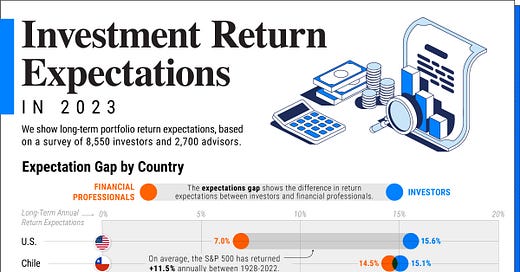The app for independent voices
Economics: Somewhere along the road, orthodox finance economists lost the plot. The Efficient Market Hypothesis was, originally: the market knows more than you do, and so you cannot “beat the market” in utility terms—if you do find a systematic way to “beat the market”, it will be because in the states of the world in which you receive high returns each unit of wealth is worth less to society than in the states of the world in which you receive low returns. You can benefit by holding other than the market portfolio if your rate of time preference is different from the market’s or if your tolerance for risk is different from the market’s or if your alternative portfolio aligns incentives. But you cannot beat the market.
But the returns to beta were never, plausibly, there because in the states of the world in which you receive high returns each unit of wealth is worth less to society than in the states of the world in which you receive low returns. And such claims for small vs. large, value vs. growth, robust vs. weak profitability, and conservative vs. aggressive on investment were an order of magnitude even more ludicrous.
So you can beat the market, by a lot over time, if you are patient and are willing to do five things systematically.
That is not an “Efficient Market Hypothesis”. That is a “Systematically Inefficient Market Hypothesis”. And only those for whom confusion is a friend and chaos is a ladder have any business calling it the EMH:
Market Sentiment <marketsentiment.co/p/gr…>: ‘Leverage Factors: The past 6 decades of data show us that 5 factors were able to explain 95% of the differences in returns between diversified portfolios (all figures are annualized). a. Market Risk (MKT-RF): The market beat one-month treasury bills by 5.37%. b. Size (SMB — small minus big): Small stocks beat large stocks by 2.04% c. Value (HML — high minus low): Value stocks beat growth stocks by 2.68%. d. Profitability (RMW — robust minus weak): Highly profitable companies outperformed weakly profitable companies by 2.8%. e. Investment (CMA — conservative minus aggressive): Companies that were conservative in asset growth beat aggressive growers by 2.93%. What this shows us in simple terms is that even if we believe in the Efficient Market Hypothesis, certain factors would get us better results through long-term exposure rather than just sticking to market-cap-weighted index funds…


